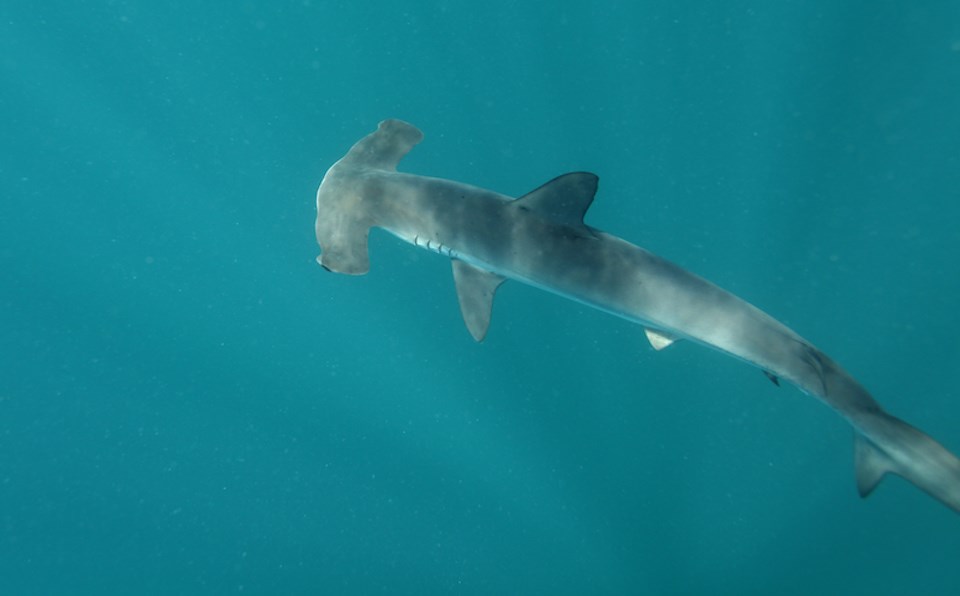Dozens of shark species frequent Metro Vancouver waters...and a few are far from tiny.
While people often gasp at the thought of large apex predators gliding past local shores, the overwhelming majority don't bite people; many of them go completely undetected, too.
One of the world's most easily identifiable sharks, the hammerhead, has been observed in B.C. waters. There are nine species of hammerhead, and the second largest, the smooth hammerhead, is distributed worldwide.
According to the Department of Fisheries and Oceans Canada (DFO), smooth hammerheads occur in " but are rare in tropical waters," and prefer waters near shores less than 20 meters.
Smooth hammerheads are commonly distributed in the western and eastern North Atlantic, ranging from Nova Scotia to Florida. Off Canada's east coast, the distinctive predators have been recorded in "Herring Cove, Sambro Light and Brier Island as well as in St. Margaret's Bay and on the northeast tip of Georges Bank."
However, a couple of "stray" smooth hammerheads were recorded off the coast of Vancouver Island.
Historical sightings of hammerheads in B.C.
Historical reports in the Victoria Naturalist show a of the smooth hammerhead shark (Sphyrna zygaena) in the 1950s (see slide two).
The DFO states that blue sharks and brown cat sharks are common in B.C. waters but great white sharks, shortfin makos, and ."
Great whites have been spotted along the Pacific Northwest in British Columbia but sightings are rare. So few have been reported that they aren't included in the DFO's .
Smooth hammerheads also aren't included in the guide, but changing ocean temperatures could mean more of them start appearing. Their range typically extends from northern California to (see slide three).
Daniel Pauly, principal investigator of the University of British Columbia's (UBC) Sea Around Us initiative, says global warming has caused a significant shift in local oceans, resulting in fish typically found in warmer waters making their way north.
"In B.C. we are getting all kinds of animals in summer that only occurred in California, including the giant squid," he told V.I.A., noting that increasing numbers of the massive cephalopods have started washing up on the island each year.
Pauly says Canada's west coast should continue seeing increased numbers of sharks migrating from southern waters.
Recorded sightings may indicate other hammerhead sharks (Sphyrna zygaena) have passed unnoticed, although evidence is needed.
What makes smooth hammerheads different than other species?
The DFO notes that smooth hammerheads have the characteristic compressed head but, unlike other species in its family, its head lacks a central indentation. They also have white undersides and brownish-gray or deep olive on top. Occasionally, they have dusky or black-tipped pectoral fins. Their teeth are "triangular and smooth-edged."
The carnivorous ocean-dwellers can grow up to 12 to 13 feet long and weigh up to 800 pounds. Females have litters of between 20 to 40 pups.
The sharks can be dangerous to divers but don't often have contact with humans.




